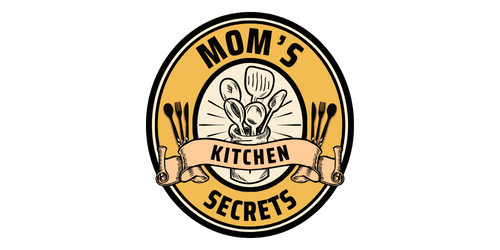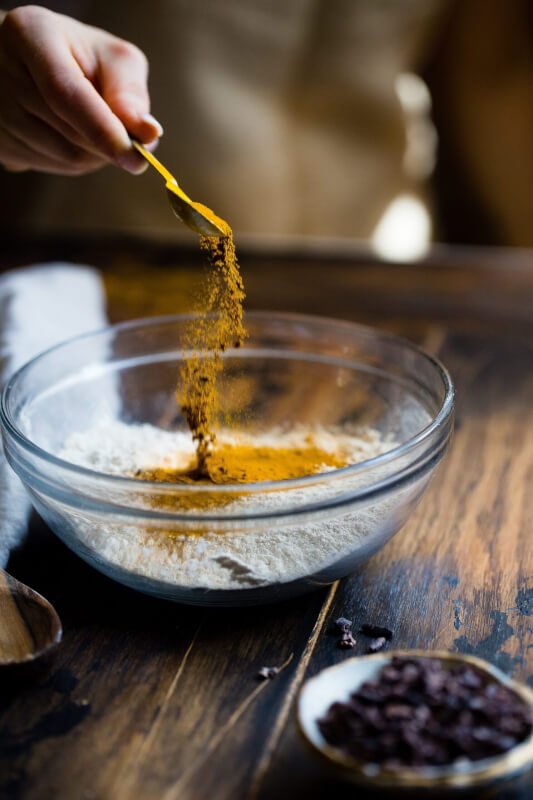If you’ve recently discovered your love for cooking or are just starting to explore your culinary skills, then this article is perfect for you! We’ve compiled the top 5 cooking tips that every beginner chef should know. From mastering basic knife skills to understanding the importance of seasoning, these tips will help you feel more confident and adventurous in the kitchen. So grab your apron, sharpen your knives, and get ready to take your cooking game to the next level!

1. Properly Measure Ingredients
When it comes to cooking, measuring ingredients accurately is crucial for achieving the best results. To ensure your dishes turn out perfectly, it’s important to use measuring cups and spoons. These tools allow you to measure both dry and liquid ingredients with precision. For dry ingredients such as flour or sugar, make sure to level off the measuring cup using a straight edge to get an accurate measurement.
In addition to measuring cups, using a kitchen scale can provide even more precise measurements. This is especially helpful when it comes to ingredients like flour, where a slight difference in weight can greatly impact the outcome of your baked goods. Investing in a good kitchen scale can make a significant difference in your cooking and baking endeavors, ensuring consistent and delicious results.

2. Understand Cooking Temperatures
Cooking temperatures play a vital role in the success of your dishes. To ensure that your food is cooked properly and safely, it is important to understand and follow the recommended cooking temperatures. Before you start cooking, make sure to preheat your oven to the recommended temperature. This will ensure that your food cooks evenly and thoroughly.
Using a food thermometer is another essential tool in your cooking arsenal. By inserting the thermometer into the thickest part of the meat, you can easily determine whether it has reached the desired internal temperature. This is particularly important when cooking meats such as poultry, pork, and beef, as they need to be cooked to specific temperatures to avoid any risk of foodborne illnesses.
It is also necessary to learn the cooking temperatures for different meats and dishes. Each type of meat has its specific recommended internal temperature, ensuring it is safe to eat and perfectly cooked. Similarly, different dishes may require specific cooking temperatures to achieve the desired texture and flavor. Familiarize yourself with these temperatures to enhance your skills in the kitchen.

3. Master Basic Knife Skills
Having good knife skills is essential for any cook, whether you’re a beginner or seasoned chef. Learning how to hold a knife correctly is the first step in mastering this skill. Hold the handle of the knife firmly with your dominant hand and place your other hand on top of the blade, using your fingers to guide the knife. This grip provides stability and control while ensuring your safety.
Understanding different knife cuts is another crucial aspect of mastering knife skills. Start by learning the basic cuts, such as the dice, julienne, and chiffonade. These cuts will allow you to prepare ingredients in various ways, adding versatility to your cooking. Practice these cuts regularly to improve your speed and precision.
Knife safety is paramount when working in the kitchen. Always make sure to keep your fingers tucked away from the blade while cutting, and use a cutting board to protect your countertops. Keep your knives sharp, as a dull blade can be more dangerous than a sharp one. With practice and attention to safety, you’ll soon become confident and efficient in using knives.

4. Learn Basic Cooking Techniques
Once you have mastered the fundamentals of measuring ingredients, understanding cooking temperatures, and developing knife skills, it’s time to learn some basic cooking techniques. These techniques will serve as the foundation for many delicious meals.
Sautéing is a popular cooking technique that involves cooking ingredients quickly in a small amount of oil or butter over high heat. This method helps to enhance flavors and develop a nice caramelization on the ingredients. It is commonly used for sautéed vegetables, shrimp, or chicken.
Boiling is another essential cooking technique. Bring a liquid, such as water or broth, to a rolling boil and cook ingredients in it until they are tender. Boiling is often used to cook pasta, rice, or vegetables.
Roasting is a dry heat cooking method that involves cooking food in an oven or over an open flame. It’s a great technique for meats, vegetables, or even fruits. The high and consistent heat helps to create a golden crust while keeping the inside moist and flavorful.
Stir-frying is a quick and healthy cooking technique that originated in Asian cuisine. It involves cooking small pieces of ingredients on high heat in a wok or skillet. The ingredients are constantly stirred, ensuring they cook quickly and evenly.
Braising is a slow cooking method that involves searing meat and then cooking it in a covered pot with liquid over low heat for a long period of time. This technique is ideal for tougher cuts of meat, as the slow cooking process helps to tenderize them and infuse the dish with rich flavors.
By mastering these basic cooking techniques, you’ll have a solid foundation to explore and create a wide variety of dishes in your kitchen.

5. Follow Recipes Closely
Following a recipe may seem like a no-brainer, but it’s a step that is often overlooked or taken for granted. To ensure the success of your dishes, it’s important to follow recipes closely and pay attention to every detail.
Before you start cooking, make sure to read the entire recipe from start to finish. This will give you a clear understanding of the steps involved and help you plan your cooking process accordingly. By knowing what to expect, you can set up your workspace and gather all the necessary ingredients and equipment beforehand.
Gathering all the ingredients and equipment before you begin cooking is a crucial step. This ensures that you have everything you need within reach, preventing any last-minute frantic searches or improvisations. It also helps to keep you organized and focused on the recipe at hand.
As you start cooking, follow the instructions step by step. Take your time and don’t rush the process. Each step is designed to contribute to the overall success of the dish, so it’s important to give each one the attention it deserves. By following the recipe closely, you’ll be able to recreate the intended flavors and textures the recipe creator intended.
Tasting and adjusting seasoning is a key step in any cooking process. As you cook, regularly taste your dish and adjust the seasonings to your liking. Keep in mind that recipes are simply guidelines, and everyone’s taste preferences may vary. Adjusting the seasoning allows you to tailor the dish to your liking, ensuring a tasty outcome every time.
By incorporating these top 5 cooking tips into your culinary journey, you’ll be well on your way to becoming a confident and skillful cook. Remember to measure ingredients accurately, understand cooking temperatures, master basic knife skills, learn different cooking techniques, and follow recipes closely. With practice, patience, and a sense of adventure, you’ll soon be creating delicious meals that will impress yourself and others around you. Happy cooking!


